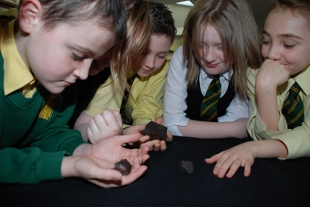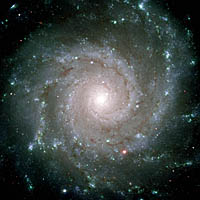Training and activities for teachers and educators.
 The night sky and other learning activities on this website can inspire learners of almost any
age – certainly from middle primary school up to A-level students. And
stargazing is a great way of taking science learning outdoors, with families
and the community.
The night sky and other learning activities on this website can inspire learners of almost any
age – certainly from middle primary school up to A-level students. And
stargazing is a great way of taking science learning outdoors, with families
and the community.
Here are ways of bringing the science learning back into the classroom:
We run training with Royal Observatory Edinburgh covering:
•the observing activities on this site
•ways to bring science back into the classroom including those below
Check the website for more information.
Robotic Telescopes
These are large telescopes that schools can access online to take images
of the night sky. Each offers something slightly different:
| Telescope | Location | Good Observing Targets | How you use it | Age/levels |
| Bradford Telescope | Canary Islands | Whole constellations or the moon. | Pupils submit requests and are sent “their” image in a few days. | Primary and early secondary |
| National Schools Observatory | Canary Islands | Planets, galaxies and nebula | Pupils submit requests and are sent “their” image in a few days. Images can be used for follow-up activities. | Upper primary and secondary. |
| Faulkes Telescopes | Two telescopes, in Hawaii and Australia – more sites from late 2012 onwards. | Faint planets, asteroids, star clusters, galaxies and nebula. | Schools book half-hour observing slots and students take real-time control of the telescope to make 3-4 observations, with images coming back within minutes. Images can be used for follow-up activities. | Upper primary and secondary. |
Other Astronomy Resources
Deep Space - The Deep Space resources support group-work by early secondary school students using real research data to develop their understanding of exoplanets and galaxies.
European Space Education Resource Office - ESERO UK, the Space Education Office for the UK, is the national focus for support for teachers using Space as context for STEM subjects.
Royal Astronomical Society - The Royal Astronomical Society, encourages and promotes the study of astronomy, solar-system science, geophysics and closely related branches of science.
Speakers
Below is a list of locations you can use to find a speaker for a range of events.
• Check the Dark Sky Discovery Sites map. From here you can find information about your nearest site and a contact for someone who may be able to provide a local speaker.
• The Science and Technology Facilities Council has a number of Public Engagement Fellows who are available to speak on a range of topics, many specialising in astronomy. Information and contact details can be found at this link: STFC Public Engagement Fellows
• The Royal Astronomical Society can also put you in touch with a range of speakers. Details about the society can be found here.
• The Federation of Astronomical Societies has a list of local astronomy groups who may be willing to provide a speaker. The list can be found here.
• The British Association of Planetaria has a map to allow you to find your nearest planetarium who may have a speaker, found here.
• Your local science centre may be able to run a workshop session for your group. The Association of Science and Discovery Centres has information about centres across the country, found here.
• For a specialised talk on the European Extremely Large Telescope, there is a speakers list here.
• If you are interested in a more educational talk then the European Space Education Resource Office has a list of Space Ambassadors from around the country who may be willing to help, found here.
• For a list of more than 50 speakers from across the UK on a variety of astronomy and space topics visit the Astro Speakers Website
